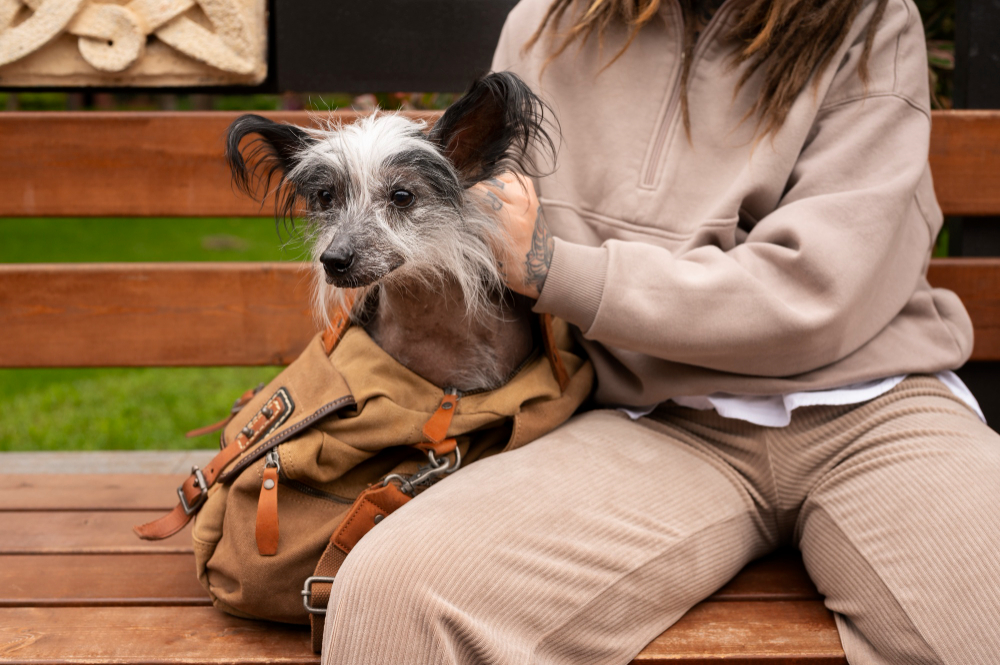Ways to Care for Your Paralyzed Pet

Ways to Care for Your Paralyzed Pet

Caring for a paralyzed pet presents unique challenges but also offers deeply rewarding experiences. Whether your beloved animal companion is dealing with temporary paralysis due to injury or a permanent condition, your care and love can significantly impact their quality of life. In this comprehensive guide, we’ll explore practical ways to help your pet live comfortably, ensuring they receive the best care possible.
Understanding Paralysis in Pets
Before we jump into the care strategies, it’s essential to understand why pets may become paralyzed. Common causes include spinal injuries, neurological disorders, infectious diseases, and congenital conditions. While each case is unique, understanding the underlying cause of your pet's paralysis can help you make informed decisions about their care.
Mobility Aids
One of the significant challenges for paralyzed pets is mobility. Fortunately, several tools and techniques can help:
1. Pet Wheelchairs: Specially designed for pets, wheelchairs can restore mobility, allowing your pet to move around independently. When choosing a wheelchair, consider the specific needs of your pet, including their size, weight, and type of paralysis.
2. Slings and Harnesses: For pets that still have some limb movement, slings and harnesses can support them while walking, helping them maintain some level of activity.
3. Physical Therapy: Consult with a veterinary physical therapist who can design exercises to improve your pet’s mobility and prevent muscle atrophy. Hydrotherapy and massages are also excellent options for maintaining muscle tone and circulation.
Comfort and Bedding
Ensuring your pet is comfortable is crucial, especially since they might spend extended periods lying down.
1. Orthopedic Beds: Invest in high-quality, orthopedic beds that offer support and alleviate pressure on your pet’s joints and body.
2. Frequent Position Changes: Regularly change your pet’s position to prevent decubitus ulcers, commonly known as bed sores. This also promotes better circulation.
3. Temperature Control: Ensure your pet's sleeping area is neither too hot nor too cold. Paralyzed pets might struggle to regulate their body temperature, so keep an eye on their environment.
Nutrition and Hydration
Proper nutrition is vital for all pets, but it becomes even more critical for paralyzed pets to support their health and recovery.
1. Balanced Diet: Work with your veterinarian to develop a diet plan that meets your pet's specific needs. This might include special formulations to support joint health or weight management.
2. Hydration: Ensure your pet has access to fresh water at all times. Hydration is crucial for maintaining their health, particularly if they are less active.
Hygiene and Grooming
Maintaining hygiene is paramount to preventing infections and other health issues.
1. Regular Baths: Keep your pet clean by scheduling regular baths. Use gentle pet shampoos, and be sure to dry them thoroughly to prevent skin issues.
2. Bladder and Bowel Care: Paralyzed pets might have trouble with bladder and bowel control. Be prepared to help them express their bladder manually or use pet diapers when necessary.
3. Grooming: Regular grooming can prevent matting and skin problems. It also provides an opportunity to check for any new sores or issues.
Emotional Well-being
Caring for a paralyzed pet isn’t just about their physical health; their emotional well-being is equally important.
1. Quality Time: Spend quality time with your pet through play and interaction. Even if they are less mobile, they’ll appreciate your presence and attention.
2. Mental Stimulation: Engage your pet with toys and activities that stimulate their mind. Puzzle toys and interactive feeders can provide valuable mental exercise.
3. Socialization: If possible, arrange playdates with other pets or introduce them to new environments to keep things interesting and engaging.
Considering In-Home Euthanasia
There may come a time when, despite your best efforts, your pet's quality of life declines significantly. In such difficult moments, considering humane options like in-home euthanasia becomes important.
In-home euthanasia offers your pet the chance to pass peacefully in the comfort of their familiar surroundings, surrounded by loved ones. If you’re considering in-home euthanasia in Jupiter, FL, contact Rover Veterinary Care for compassionate, professional assistance and guidance through this challenging decision.
Conclusion
Caring for a paralyzed pet requires dedication, compassion, and patience, but the bond you'll build through this care can be incredibly rewarding. Remember, you're not alone in this process; reach out to veterinarians, support groups, and resources to provide the best possible care for your beloved companion.
